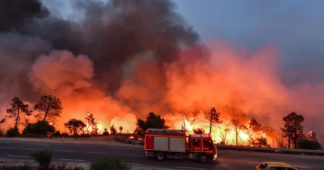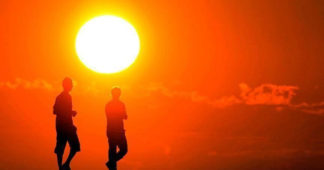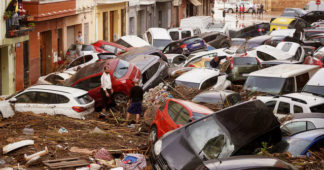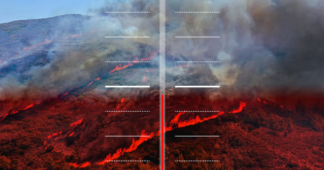By Rasigan Maharajh[1],
PhD, MASSAf
Sochi, 7 November 2024
Report delivered to the Valdai Forum
Environmental problems cannot be solved separately from redressing global inequality problems. The World Meteorological Organization recently noted that “Human-caused climate change has resulted in widespread and rapid changes in the atmosphere, ocean, cryosphere and biosphere. The year 2023 was the warmest on record by a large margin, with widespread extreme weather. This trend continued in the first half of 2024” (WMO, 2024).
According to the WMO: “The science is clear. We are far off track from achieving vital climate goals. The impacts of climate change and hazardous weather are reversing development gains and threatening the well-being of people and the planet. Greenhouse gases and global temperatures are at record levels. The emissions gap between aspiration and reality remains high” (ibid.).
The colonial and imperial phases of globalisation largely established the current world systems. These are essentially premised upon unequal exchanges between the global North and global South. Hickel and colleagues recently calculated that the global North extracted raw material equivalents, land, energy, and labour worth approximately US$ 10.8 trillion in 2015 which could have ended extreme poverty 70 times over. Between 1990 until 2015, the cumulative drain from the global South was approximately US$ 242 trillion[i] (Hickel et al, 2022). It is therefore clear that “… unequal exchange is a significant driver of global inequality, uneven development, and ecological breakdown” (ibid.).
Whilst heroic struggles for national liberation challenged aspects of colonial and imperial subjugation, the institutional apparatuses established after the second world war, or the great patriotic war, have served to maintain the hegemony of the global North and specifically, the G7.
The global CoVID-19 pandemic exposed structural flaws in our international system whilst reminding us that no-one is safe unless we all are safe. Our collective scientific and technological competences generated rapid solutions that helped save lives. Notwithstanding, we are again witnessing attempts to weaponise the intellectual property systems through restrictions on knowledge sharing and the transfer of technologies. These must be collectively resisted and condemned.
All countries should seek wider and deeper cooperation and collaboration to accelerate the co-construction of knowledge to enable just transitions from the unsustainability of extractive exploitation without benefiting from value-addition. Efforts at reforming international institutions that continue to facilitate the processes of unequal exchange however continues to generate frustrations and despair.
As acknowledged by the Secretary-General of the United Nations in his contribution to the recent successful 16th BRICS Summit in Kazan, the current international financial architecture is “outdated, ineffective and unfair” (UN, 2024). This was echoed in a recent assessment by the Global Policy Forum of Germany which determined that these “… institutions have failed in their mission to prevent and mitigate crises and to mobilise sufficient financing for internationally agreed development goals” (GPF, 2024).
Our common security would be enhanced by actively reducing inequities in world systems, active knowledge sharing, and ensuring equitable opportunities for the development of all. Our very survival is at risk should we fail to match our rhetoric with actual practices and resources that support all countries facing increasing environmental degradation, climate change, and ecological precarity. Enduring peace could also be a collateral benefit of such progressive transformations.
[1] IERI Graduate School of Economics, Department of Economics, Faculty of Economics and Finance, Tshwane University of Technology, Republic of South Africa.
[i] in constant 2010 US$.
References
GPF. 2024. Building New Foundations: Reimagining the International Financial Architecture, Global Policy Forum Europe, Bonn.
Hickel, J.; Dorninger, C.; Wieland, H.; and Suwandi, I. 2022. Imperialist Appropriation in the World Economy: Drain from the global South through Unequal Exchange: 1990–2015, Global Environmental Change 73: 102467.
2024. BRICS Summit: Guterres underscores bloc’s role in boosting global cooperation, United Nations News, https://news.un.org/en/story/2024/10/1156086
WMO. 2024. United in Science 2024, World Meteorological Organization, Geneva, https://library.wmo.int/idurl/4/69018.
[1] IERI Graduate School of Economics, Department of Economics, Faculty of Economics and Finance, Tshwane University of Technology, Republic of South Africa.
[i] in constant 2010 US$.
We remind our readers that publication of articles on our site does not mean that we agree with what is written. Our policy is to publish anything which we consider of interest, so as to assist our readers in forming their opinions. Sometimes we even publish articles with which we totally disagree, since we believe it is important for our readers to be informed on as wide a spectrum of views as possible.











